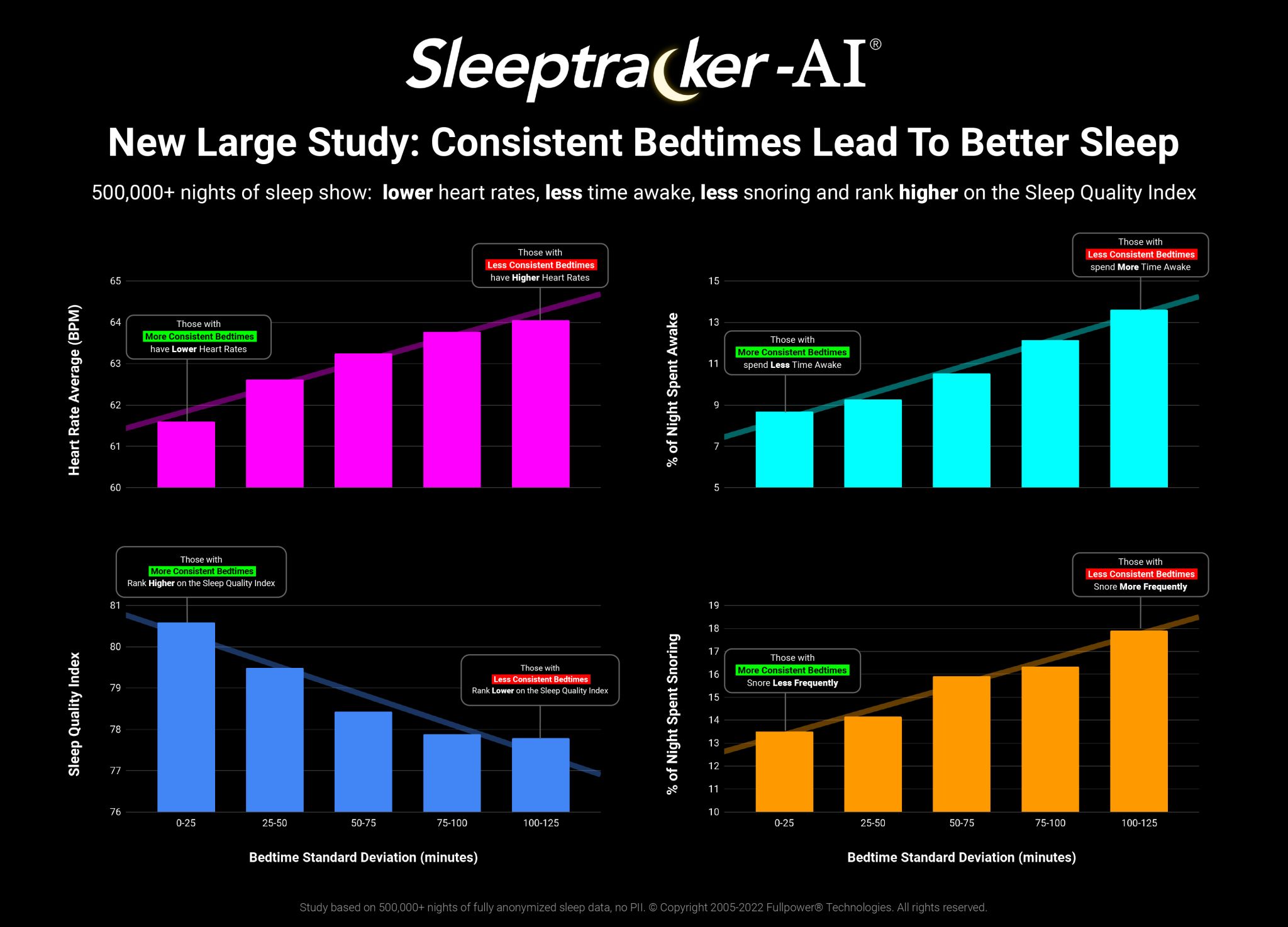The Sleeptracker-AI team looked at irregular sleep patterns on 500,000 nights of sleep and consistent bedtimes, which led to better sleep quality.
This is important because a new study has found that not sticking to a regular bedtime and wake-up schedule — and getting different amounts of sleep each night — can put a person at higher risk for obesity, high cholesterol, hypertension, high blood sugar, and other metabolic disorders, in fact, for every hour of variability in time to bed and time asleep, a person may have up to a 27% greater chance of experiencing a metabolic abnormality.
